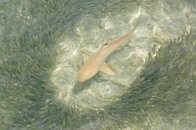Hello everyone out there.
I am loving my new found passion for diving but would like your comments on my recent experience as I am a bit puzzled.........
Aged nearly 60 I learnt to dive on a live aboard trip on the Great Barrier Reef in December 2018.
Completed 8 dives and did SSI OWD.
All good but felt I had just had a glimpse of what diving is all about and that I had taken one step towards being considered a ‘diver’.
Second diving trip last week in the Maldives ( ok so I really don’t like cold water, I’ll admit it).
Signed up for SSI Advanced Adventurer and EANx courses.
Turned up first morning and my instructor briefed me at the dive centre in a 1:1 session, and then we walked over to the dock/jetty to get in the water. What about a buddy check I said ? feeling like a refresher on proper procedure after 6 months since my first dives ever.......
‘I don’t usually bother with those when I have an advanced student as they can do their own’ !!! he replied and proceeded to get ready to enter the water, while I ran through my own checks!
I was at a loss to really understand why this would be considered good practice?
Anyway once in the water I had air , no leaks, positive buoyancy and didn’t drop my weights to the bottom of the ocean so all’s good right? !
I had the choice on the second day to go on a safari trip with him and a group but elected to go with another instructor and different dive sites for my deep dives and Nitrox.
What do you all make of this?
Thanks for your comments,
H
I am loving my new found passion for diving but would like your comments on my recent experience as I am a bit puzzled.........
Aged nearly 60 I learnt to dive on a live aboard trip on the Great Barrier Reef in December 2018.
Completed 8 dives and did SSI OWD.
All good but felt I had just had a glimpse of what diving is all about and that I had taken one step towards being considered a ‘diver’.
Second diving trip last week in the Maldives ( ok so I really don’t like cold water, I’ll admit it).
Signed up for SSI Advanced Adventurer and EANx courses.
Turned up first morning and my instructor briefed me at the dive centre in a 1:1 session, and then we walked over to the dock/jetty to get in the water. What about a buddy check I said ? feeling like a refresher on proper procedure after 6 months since my first dives ever.......
‘I don’t usually bother with those when I have an advanced student as they can do their own’ !!! he replied and proceeded to get ready to enter the water, while I ran through my own checks!
I was at a loss to really understand why this would be considered good practice?
Anyway once in the water I had air , no leaks, positive buoyancy and didn’t drop my weights to the bottom of the ocean so all’s good right? !
I had the choice on the second day to go on a safari trip with him and a group but elected to go with another instructor and different dive sites for my deep dives and Nitrox.
What do you all make of this?
Thanks for your comments,
H





